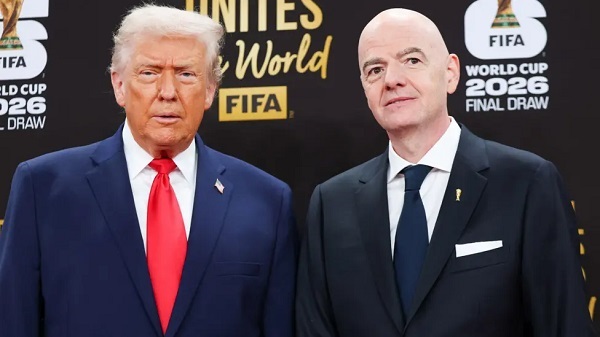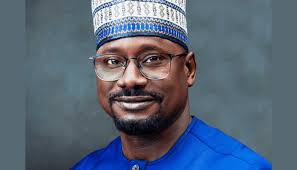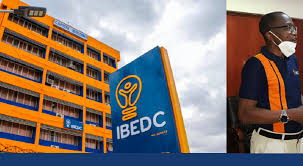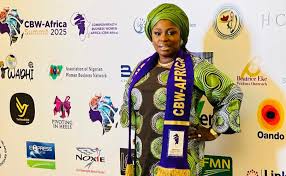Development Stakeholders Strategize for Sustainable Future Beyond Foreign Funding
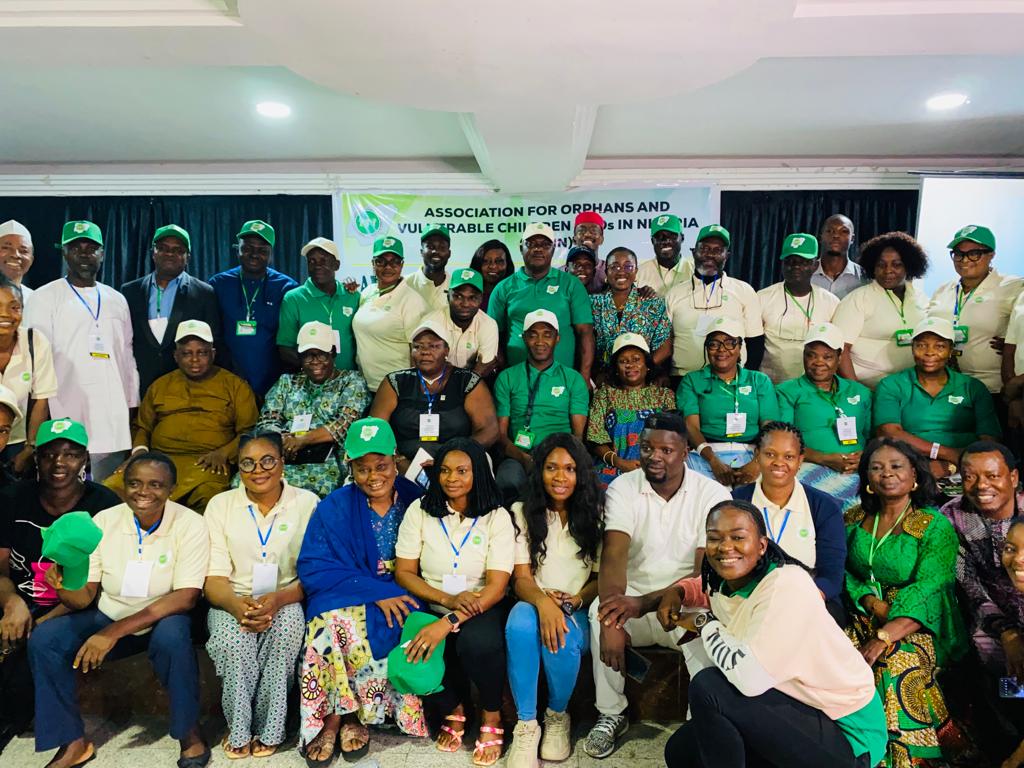
By Prosper Okoye
As global crises worsen and charity funds divert to more precarious nations, developmental stakeholders in Nigeria have initiated discussions about the future of humanitarian services using local donor funds.
The National Coordinator of the Association for Orphans and Vulnerable Children (AONN), Marcs Williams, told DAILY TIMES that, among other objectives, finding solutions to this issue had motivated the selection of their annual general meeting theme: “Improving the Quality of OVC Programming by CSOs in Nigeria.”
“We chose this theme to ensure that the coordination of OVC programming in Nigeria is not only well-organized, but also delivers services of high quality to the children, thereby enhancing their well-being.
“Our aim is to guarantee that even when the donors who currently provide support are no longer available, we can continue delivering services at our own capacity and level using localized funding. This is important because if we lack the capacity to do so, we might become overly dependent on donor support, leading to potential problems and challenges.
“Any progress achieved in the lives of these vulnerable households would then be compromised. This situation would hinder epidemic control and exacerbate the plight of vulnerable children. We reject such an outcome and strive to avoid it by promoting sustainability through effective coordination,” he added.
AONN, which was established nearly two decades ago, has garnered substantial foreign grants and undertaken numerous projects, according to Dr. Grace Dafiel, the organization’s Board Secretary.
“The conception of AONN originated in 2005 through myself and my elder sister, as a Northern initiative. We envisioned bringing Northern Civil Society organizations together to enhance their capacity, thus enabling us to deliver high-quality services. In 2006, we convened our inaugural meeting with just ten organizations.
“However, following my attendance at an African Regional conference in Uganda in 2007, I returned with renewed fervor and a commitment to contribute to society. This led to my invitation to the initial ten organizations, who subsequently invited their associates. Furthermore, I extended invitations to others for whom I facilitated their Corporate Affairs Corporation (CAC) registration process as a lawyer. Consequently, our attendance skyrocketed to 55 organizations.
“During the meeting, participants proposed a shift from my initial Northern-centric agenda to establish a national movement. By 2007, AONN transformed into a national entity encompassing community-based, national, and regional organizations providing services for orphans and vulnerable children.
“AONN’s impact spans projects benefitting over 1 million children, funded by diverse grants. Reflecting on our journey, we have grown from the initial 55 organizations to 3,397 today.
“I attribute AONN’s enduring strength to its independence from external funding sources. Presently, there exists no facet of Nigeria’s efforts concerning vulnerable children in which AONN does not play a pivotal role. Our reputation and effectiveness have garnered recognition even from international partners such as the International Organization for Migration (IOM), PEPFAR through USAID, and CDC partners implementing vulnerable children’s programs in Nigeria.
“Notably, the Federal Ministry of Women Affairs has essentially adopted AONN as a CSO response to matters involving vulnerable children. Reflecting on this, I take great pride in having contributed to the organization’s accomplishments, though we acknowledge that our journey is ongoing.”
Dr. Dafiel further emphasized that the organization has actively endeavored, through its members, to reduce and alleviate the vulnerability impact on Nigerian children.
Reflecting on the results, she added, “Today, some of these individuals have successfully graduated from higher institutions, while others have re-engaged in the development sector.”
In a heartening incident, Dr. Dafiel shared her excitement: “just recently someone walked up to me and asked, ‘Ma, do you recall me?’ “I replied that I couldn’t remember. He went on, ‘In 2008, in Enugu State.’ “That triggered an immediate recollection, as he continued, ‘I am that child.’ “Presently, he works with an international partner, even holding a leadership position within one of the operational states.”
Addressing the impact of HIV and AIDS, Dr. Dafiel underscored AONN’s effective mitigation measures, particularly in ensuring comprehensive support for children whose parents died due to the virus, or was rendered incapable of caregiving due to the disease.
“AONN, operating through its members, assumed these responsibilities, thereby facilitating the children’s well-being and full integration into their communities. Stigma combat was integral, as AONN aimed to eliminate all forms of discrimination that could hinder these children,” she noted.
Reflecting on the past 18 years, Dr. Dafiel stated that she was exited at the progress made.
“Beyond the children’s well-being, the organizations for which AONN enhanced capacity have also begun to access grants, thus initiating resource mobilization endeavors for sustainable community impact.”
Excellence Community Education Welfare Scheme (ECEWS), represented by Dr. Okezie Onyedinachi, the Head of Clinical Services, shared his thoughts about the meeting with DAILY TIMES.
“We are thrilled to take part in this scientific conference as it is aimed at empowering local organizations to actively take the lead in project implementation processes through partnerships,” said Dr. Onyedinachi.
Furthermore, he shared a piece of wisdom handed down from his father: ‘Don’t rely on another person’s eyes.’ This saying he said, emphasizes the significance of self-sufficiency and autonomy in resource management.
He mentioned examples, such as the governor’s wife in Kwara State funding the OVC program in her state, and how his organization also supports out-of-school children through funding from the Oando firm.
Dr. Onyedinachi stressed that obtaining local funding is feasible. “However, the organization’s structure to meet donor requirements, including implementing a governance system with a well-structured board and strong financial management, will determine the level of donor trust,” he said.
Pact ACHIEVE Project OVC Consultant, Ijeoma Lai-Labode, said the session titled “Implementing Local OVC Programming: The Pact Experience” taught the participants how the Pact project carried out its OVC program, which was successful.
She pointed out the changing focus of OVC programming towards a more clinical approach, especially for organizations that receive PEPFAR funds.
“These organizations are now required to meet specific goals related to HIV. Regrettably, challenges persist for children and teenagers who live with HIV/AIDS, affecting how successful their treatment is and the overall program goals,” she said.
She told the DAILY Times that the positive progress and rebranding of AONN offered hope for supporting other NGOs in the network to address this challenge and in turn address youth unemployment, “as the NGOs are also employers of labour.” She said building the capacity of the NGOs would benefit the country in general.
The United States Department of Defense’s OVC program specialist, Silas Idoko, emphasized the importance of the participants collaboration to achieve sustainable development in Nigeria.
“This is especially crucial given that the entire program is transitioning toward sustainability. As funding cuts off, we must strategize within the country to determine the most suitable approach,” he said.
Idoko urged participants to extend their partnerships beyond the OVC network.
READ ALSO: Gov Fintir jets out of state on vacation, transmits…
“They should seek collaborations with those not engaged in OVC implementation and provide them with valuable resources, thus preventing resource wastage. It’s crucial to establish OVC-to-OVC partnerships to avoid duplicating efforts and to ensure the replication of best practices from one state to others where they have not yet been implemented,” he added.
AONN FCT Coordinator, Kiema Ogunlana, expressed her delight that the annual general meeting had been successful.
“The aims and objectives are being met,” she said.
Additionally, the Coordinator stated that the network remains open to more collaborations.





